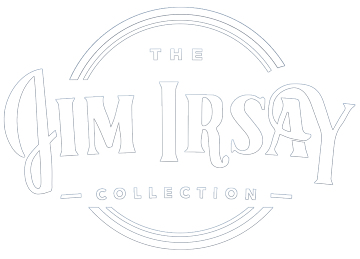Handwritten letter from Thomas Jefferson to Thomas Paine
Letter: 10 x 8 in. (25.4 x 20.3 cm)
"Your favor of the 8th was received some days ago. Mr. Holmes did apply to me in the course of the late session for information respecting some application of yours, the particulars of which I do not now recollect. But I well remember it was on some matter which took place while I was not a member of Congress and therefore knew nothing of but what was on the records. I was absent from Congress from 1777 to1803 being during that interval closely employed by my own state. I advised him to examine the files of the department of state & have no doubt he obtained all the information they furnish. Your ideas expressed in the latter part of your letter are undoubtedly correct. They were taken up the moment the law passed giving a power of suspending the embargo in whole or in part on the repeal of the decrees or orders of council. As yet we have reaped no fruits from our endeavors. Proposing to absent myself from this place during the sickly season now approaching and much occupied with preparations I must here place my salutations and assurances of great esteem & respect.
Signed Th. Jefferson"
Thomas Jefferson (1743-1826) was an American statesman and politician who was a Founding Father of the United States. Jefferson served as the third President of the United States from 1801-1809, having previously served as the country's second Vice President under John Adams and the first Secretary of State under George Washington. Jefferson was a key figure in the American Revolution and was the primary author of the Declaration of Independence.
Jefferson was born in the British colony of Virginia and raised there on his family's plantation. Jefferson attended the College of William & Mary and became a lawyer. He later served in the Virginia House of Burgesses from 1769-1775. At the outbreak of the American Revolutionary War, Jefferson became a delegate to the Second Continental Congress. While serving with the Continental Congress, Jefferson was appointed to the Committee of Five, charged with authoring a declaration of independence. Jefferson wrote the Declaration of Independence between June 11 and 28, 1776 while staying in Philadelphia, and after receiving feedback from other committee members presented the final draft to the Continental Congress on June 28, 1776. Debate over its contents lasted until July 4, 1776, when the Continental Congress ratified the document before it was signed by delegates on August 2, 1776.
Jefferson returned to Virginia during the Revolutionary War, where he was named a Colonel in the Albemarle County Militia and was elected to the Virginia House of Delegates, charged with writing a state constitution. Jefferson was then named as a Virginia delegate to the Congress of the Confederation, where he served from 1783-1784 before being named as Minister Plenipotentiary for Negotiating Treaties of Amity and Commerce, and was sent overseas to Great Britain and France as de facto ambassador. Jefferson served overseas until 1789 when he returned to the United States. President George Washington appointed Jefferson as the country's first Secretary of State, where he worked to decrease America's dependence on Britain for trade.
In the 1796 presidential election, Jefferson lost to John Adams and became Vice President due to the election laws of the time. In the election of 1800, Jefferson again contested Adams and in an a tie between Jefferson and Aaron Burr, Jefferson was elected president by a tie-breaking ballot in the U.S. House of Representatives. Jefferson's presidency was marked by expansion of the country through the 1803 Louisiana Purchase and the use of the U.S. Navy as part of the country's first foreign war on the Barbary Coast. Jefferson was reelected in 1804, and continued his attempt to strengthen the United States' standing through annexation and trade embargos.
After leaving the Presidency, Jefferson returned to Monticello, his estate in Virginia. In 1819, he founded the University of Virginia, and helped plan the university's buildings and curriculum. He died on July 4, 1826, on the 50th anniversary of the adoption of the Declaration of Independence.
Thomas Paine (1737-1809) was an American Founding Father and political philosopher. Paine published several pamphlets during the American Revolutionary era, including Common Sense (1776) and The American Crisis (1776), which were influential in inspiring colonial patriots to declare independence from Great Britain.






















